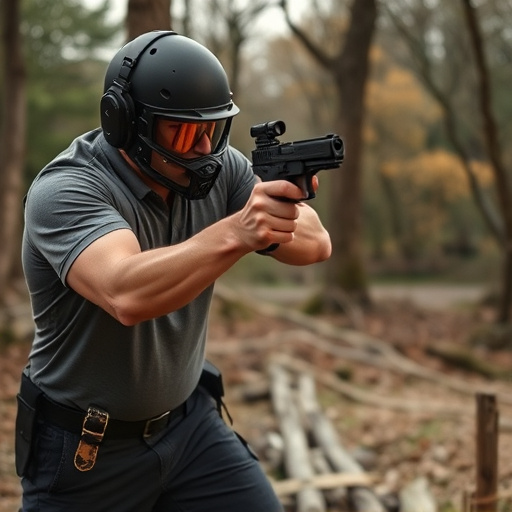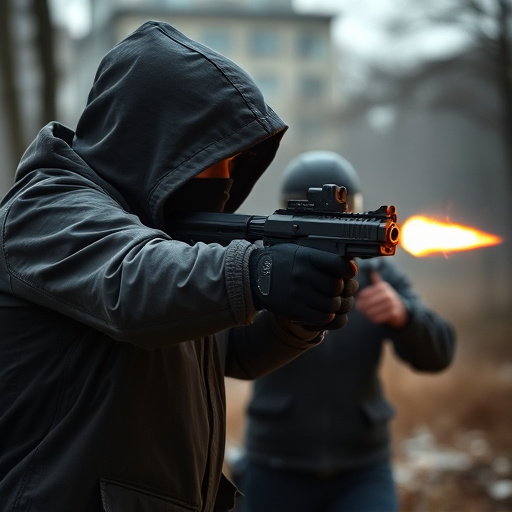Civilian Taser Ownership: State Laws, Safety, and Legal Protection
Understanding Taser ownership laws and safe handling practices is crucial before purchasing or using…….
Understanding Taser ownership laws and safe handling practices is crucial before purchasing or using a stun gun for personal protection. State regulations vary widely, dictating who can own, carry, and use stun guns, with some requiring permits or licenses while others allow open carry. Legal compliance involves meeting specific requirements like training and permit acquisition, differing across regions. Safe use includes correct deployment techniques, secure storage, regular inspection, and knowledge of local laws to avoid legal issues such as assault or reckless endangerment charges. Prioritizing these practices ensures responsible stun gun ownership for effective self-defense while adhering to state regulations.
“Uncovering the complexities of civilian taser ownership, this comprehensive guide navigates state laws and regulations, empowering individuals seeking self-defense options. From understanding licensing requirements to exploring state-specific nuances, we demystify the process. Learn about safe handling practices to ensure your safety and compliance. Discover the legal implications of using a stun gun for protection, offering valuable insights into how to safely employ these devices for personal security.”
- Understanding Taser Ownership Laws: A Comprehensive Overview
- Licensing and Permits: What You Need to Know Before Purchasing
- State-Specific Regulations: Exploring the Nuances of Civilian Ownership
- Safe Handling Practices: Ensuring Your Safety and Compliance
- Legal Implications: Using a Stun Gun for Self-Defense
Understanding Taser Ownership Laws: A Comprehensive Overview

Understanding Taser ownership laws is essential for anyone considering purchasing one for personal protection. These laws vary significantly from state to state, determining who can own, carry, and use stun guns. To ensure safety, it’s crucial to familiarize yourself with these regulations before making a purchase. Many states require a permit or license to own a taser, while others have less stringent requirements, allowing open carry or restricting them to law enforcement only.
Knowing the local laws is just the first step. Understanding how to safely use a stun gun for protection is equally vital. Training and education are recommended to learn proper techniques, ensuring both effectiveness and minimal risk. With the right knowledge, individuals can leverage their taser as a means of self-defense, providing peace of mind in potentially dangerous situations.
Licensing and Permits: What You Need to Know Before Purchasing

Before considering purchasing a stun gun for self-defense, it’s crucial to understand the licensing and permit requirements in your state. Not all states allow civilian ownership of stun guns, and those that do often have specific regulations in place. Some states issue permits or licenses for stun gun ownership, while others may not require any formal authorization.
The process typically involves a background check and sometimes additional training on how to safely use a stun gun for protection. It’s essential to research your state’s laws thoroughly to avoid legal complications. Understanding these regulations is the first step in responsible stun gun ownership and ensuring you can legally carry and use your device for personal safety.
State-Specific Regulations: Exploring the Nuances of Civilian Ownership

In the United States, civilian ownership of stun guns or Tasers is regulated by state laws, each with its own set of requirements and restrictions. Understanding these nuances is crucial for those looking to exercise their right to self-defense while adhering to legal boundaries. The regulations vary widely, covering aspects such as age restrictions, background checks, training mandates, and permitted uses.
For instance, some states allow unrestricted civilian ownership of stun guns with minimal requirements, focusing on ensuring responsible use. Other states have more stringent rules, mandating specific safety courses or prohibiting their use in certain public places. Knowing how to safely use a stun gun for protection is not just about understanding its functionality; it involves adhering to local laws and maintaining a level of expertise that promotes safe and legal self-defense.
Safe Handling Practices: Ensuring Your Safety and Compliance

When considering civilian taser ownership, understanding safe handling practices is paramount to ensuring your safety and compliance with state laws. To safely use a stun gun for protection, it’s crucial to undergo proper training and familiarize yourself with your local regulations. This includes learning the correct techniques for deployment, as well as understanding the legal implications of using a taser.
Always keep your taser in a secure, locked case until you need it for self-defense. Store it in a location where it’s out of reach of children and unauthorized individuals. Regularly inspect your taser for any signs of damage or malfunction, and ensure that the device is always charged and ready for use. Additionally, maintain open lines of communication with local law enforcement to stay informed about any updates to taser ownership laws in your state.
Legal Implications: Using a Stun Gun for Self-Defense

Using a stun gun for self-defense, also known as a Taser, carries significant legal implications that vary widely depending on state laws. Before considering it as a personal protection tool, individuals must understand the potential consequences of its misuse or unauthorized deployment. In many states, owning a stun gun is legal if you meet certain requirements, such as completing a safety training course and obtaining a permit. However, these regulations differ across regions, with some areas prohibiting civilian ownership entirely or limiting its use strictly to law enforcement and security professionals.
To safely use a stun gun for protection, it’s crucial to familiarize yourself with local laws and prioritize responsible ownership. This includes understanding the specific trigger requirements, safe storage practices, and permissible circumstances for deployment. Misuse or unexpected activation could lead to severe legal repercussions, including charges of assault or even reckless endangerment. Therefore, ensuring compliance with state regulations is paramount when considering how to safely use a stun gun for protection.
Understanding the civilian taser ownership requirements through state laws is crucial for ensuring safe and legal self-defense with stun guns. By delving into licensing, permits, and state-specific regulations, individuals can navigate the complexities of civilian taser ownership. Adhering to safe handling practices and being aware of legal implications empowers folks to protect themselves effectively while staying within the law. Remember that, in today’s world, knowing how to safely use a stun gun for protection is an important step toward enhancing personal safety.


